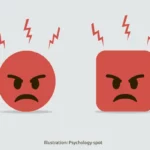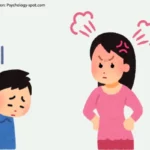
In recent times, a trend that is as understandable as it is potentially dangerous has spread: treating children as if they were fragile glass. Of course, when babies are born, they are helpless and dependent on their parents for all their needs. As parents, we understand that our job is to give our children everything they need and do everything we can to protect them from harm.
However, as children grow older and become more autonomous, our role begins to change. Many parents do not realize this and continue to hyper-protect their children, avoiding mistakes, failures and disappointments. And that is probably one of the biggest mistakes we can make. But it is not exclusive to parents, but is becoming endemic to our society.
Mistakes as valuable learning opportunities
At school, corrections in red are usually synonymous with error and failure, to the point that the possibility of eradicating them once and for all has begun to be debated. That education should focus on strengthening children’s strengths is not a new concept. It was introduced by Lev Vygotsky at the beginning of the 20th century.
However, that mistakes teach – and sometimes also leave us very valuable lessons – should not be the subject of discussion either. Neuroscience has shown that our brain does not like mistakes, so it is programmed to learn from them faster, with the aim of avoiding them in the future.
Neuroscientists at the University of Iowa, for example, confirmed that our brain can distinguish in just a second whether the error is attributable to a behavior and, if so, it works at full speed to catalog it, learn and try not to repeat that error.
Mistakes can cost us dearly and even be dangerous, so it is not strange that our brain prioritizes their processing. In fact, researchers at Cedars-Sinai Medical Center discovered what they called “error neurons,” a unique neural network dedicated to monitoring and controlling our mistakes.
It has also been found that after making a mistake, we respond more slowly the next time, which is because our brain is giving itself a little more time to avoid making the same mistake again. And the stronger the brain response to error, the more cautious we will be next time.
This natural mechanism helps us regulate our behavior and make the necessary adjustments to reduce the chances of repeating those mistakes in the future. Of course, that process is not always pleasant. Mistakes can be painful. Realizing that we have committed them is also hard. But that is part of the learning process. If we rob children of the possibility of making mistakes, we also rob them of the possibility of learning from their mistakes.
The balance between protecting and preparing children
As parents, we worry that if our children make mistakes, that failure could have a negative impact on their self-esteem. With good intentions, we rush to fix things so that our children do not feel anxious or upset. This way we save them the “problems”, but we also minimize learning opportunities.
There is a delicate balance between “parenting to protect” and “parenting to prepare.” Protecting our children is important, but it is also important to prepare them for life, especially because we will not be able to always be by their side to save their chests from the fire.
In fact, as children grow, the best way to protect them is to prepare them for the eventual mistakes, failures, and disappointments they will inevitably experience in adulthood. Kids must have stumbled and learned to pick themselves up, dust themselves off, and try again.
On the other hand, parents need to understand that rescuing their children from the anxiety that mistakes can generate only serves to increase that anxiety as children learn to avoid situations that cause the slightest discomfort. As a result, they are unable to assertively manage these events, which in the future will generate much higher levels of apprehension, anguish and anxiety.
In this sense, research carried out at the University of Toronto revealed that students who had a larger error detection and processing network (ERN) tended to obtain higher grades and had greater academic performance. Therefore, mistakes do not hinder learning nor are they public enemy number one for children, quite the contrary, as long as they are used appropriately.
Towards an education that truly develops
The key to not protecting children from mistakes unnecessarily lies in the concept of the Zone of Proximal Development. That is, allowing the little ones to make their decisions, make mistakes and learn to manage those failures, always within their capabilities and level of maturity.
You have to “push” a little to promote development, but not so much as to cause intolerable frustration. You have to stay out of it to allow them to discover their own path and deploy their coping strategies. And you have to give them support when they need it, but not solve the problems for them.
Overcoming obstacles builds resilience and confidence in their own abilities. Parental overprotection, on the other hand, limits their capabilities. Your children need to know that you will be by their side to support them, but they also need to make mistakes, learn and become resilient so that tomorrow they can face whatever life throws at them. For that reason, errors are welcome!
References:
Choo, Y.; Mather, A. & Wessel, J. R. (2023) “Early action error processing is due to domain-general surprise while later processing is error-specific. Journal of Neuroscience; 43(45): 7678-7689.
Fu, Z. et. Al. (2023) Neurophysiological mechanisms of error monitoring in human and non-human primates. Nat Rev Neurosci; 24(3):153-172.
Overbye, K. et. Al. (2019) Error processing in the adolescent brain: Age-related differences in electrophysiology, behavioral adaptation, and brain morphology. Dev. Cogn. Neurosci; 38:100665.
Hirsh, J. B. & Inzlicht, M. (2010) Error-related negativity predicts academic performance. Psychophysiology; 47(1): 192-196.




Leave a Reply